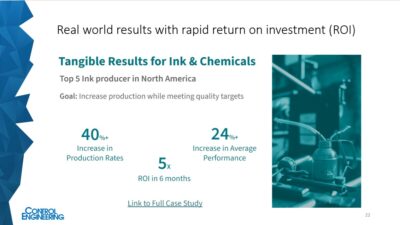The cacophony of implementation can obscure the original control and automation score. People may realize they've reached that point soon after the newest band member gathers enough gumption to ask, "Why are we doing it this way?" Now that change is the only constant, everyone knows better than to respond with the classic refrain: "That's the way we've always done it.
The cacophony of implementation can obscure the original control and automation score.
People may realize they’ve reached that point soon after the newest band member gathers enough gumption to ask, “Why are we doing it this way?” Now that change is the only constant, everyone knows better than to respond with the classic refrain: “That’s the way we’ve always done it.” No one wants to be accused of not hearing the pop music of business over the last four or five years.
Conflicting voices
Usually, if anyone acknowledges such a question, the response includes several choruses of (use your best corporate voice)…
“We’re doing it this way because we need to:
-
Focus on core competencies;
-
Be more flexible;
-
Standardize disparate processes;
-
Optimize the supply chain;
-
Integrate data throughout the organization;” or,
“Ensure we’re Y2K compliant” (a longtime hit at the top of the charts).
Each is someone’s favorite song.
One of many common-sense presentations at the June 1999 ARC Strategies Forum, in Boston, Mass., stressed the need to remain attuned to “The Goal.” In case you can’t see the sheet music from where you are at the moment, “The Goal” is not any of those bulleted items above, reminds Ed Markowitz, ARC Advisory Group (Dedham, Mass.). “The Goal” is to make more money for the company.
“Well, yes, of course,” everyone says. “That’s understood—doing these things orchestrates the money-making process.” However, without proper tuning, Mr. Markowitz suggests, each effort will “suboptimize overall potential,” creating cacophony.
We all know timing is key. Here’s the analogy: Collected data points are to information as piles of notes are to musical phrases. If information answers more than the question asked at the moment, it remains data out of synch with overall business needs. People need quality information at the right time to do their jobs well.
Several articles in this issue break through the noise of implementation, offering practical lessons for hearing the original goal, making money. The cover story tells “How to Get Your Project Approved,” and a related article explains when to use in-house services, vendor consulting services, or a system integrator.
Getting a project approved (then seeing it succeed) requires defining, linking, and following business, process, and system objectives. ” Too frequently,” says Dave Harrold, Control Engineering senior editor, “requests for proposals only focus on price, ease-of-use, and technology.”
Identify deviations
In the second piece, Vance VanDoren, Control Engineering consulting editor, adds, “deviations from the plan can be identified and evaluated before they are undertaken and end up derailing the original objectives.”
The last measure, says ARC’s Mr. Markowitz, in business process reengineering efforts, returns to the beginning for a reprise. Does the performance fairly express the original score or diverge so much that no one remembers the tune? Listen, really listen, to the music.
| Author Information |
| Mark T. Hoske, Editor-in-Chief [email protected] |




